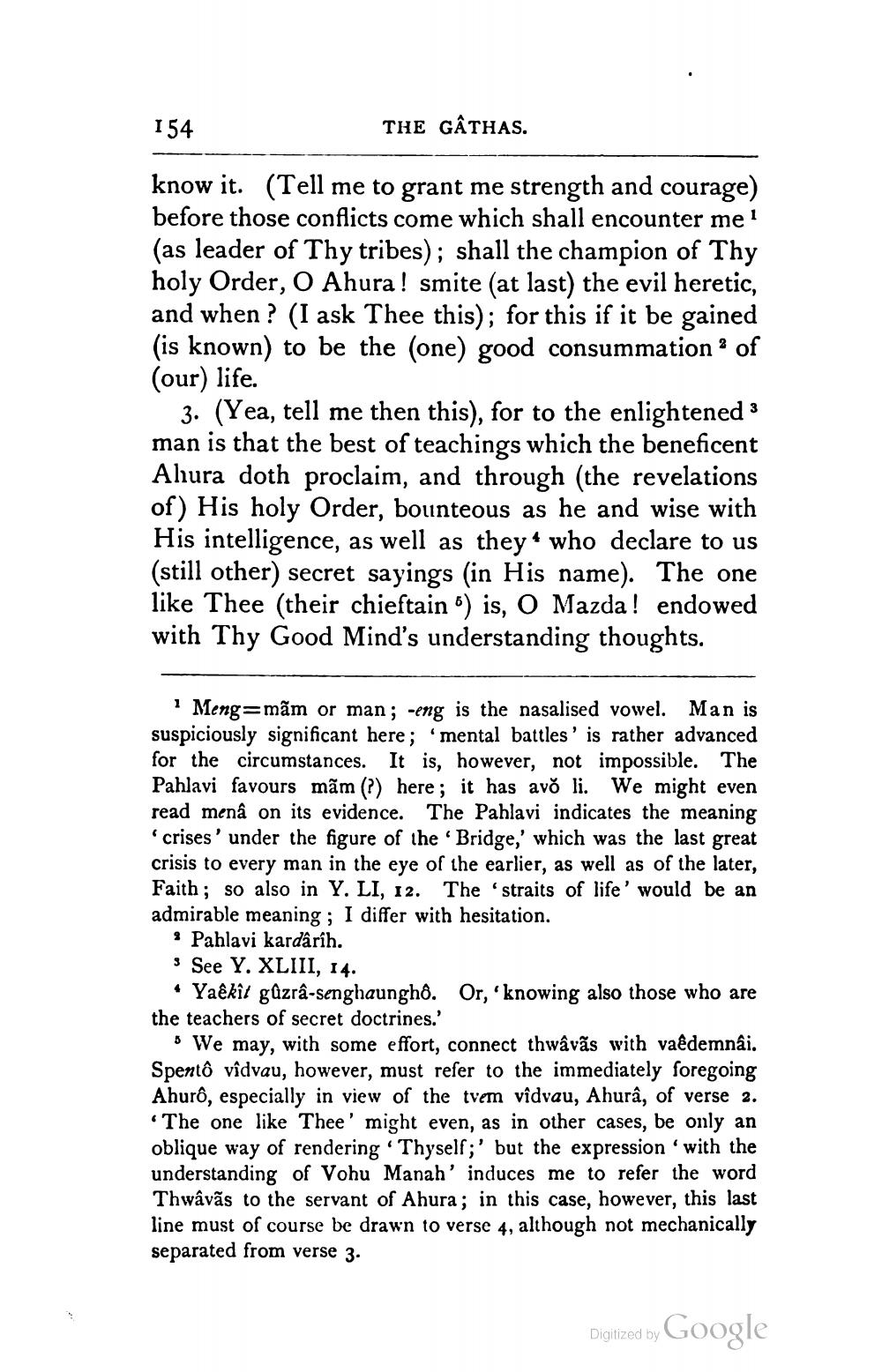________________
154
THE GÂTHAS.
know it. (Tell me to grant me strength and courage) before those conflicts come which shall encounter me! (as leader of Thy tribes); shall the champion of Thy holy Order, O Ahura! smite (at last) the evil heretic, and when ? (I ask Thee this); for this if it be gained (is known) to be the (one) good consummation of (our) life.
3. (Yea, tell me then this), for to the enlightened 3 man is that the best of teachings which the beneficent Ahura doth proclaim, and through the revelations of) His holy Order, bounteous as he and wise with His intelligence, as well as they who declare to us (still other) secret sayings (in His name). The one like Thee (their chieftain ) is, O Mazda! endowed with Thy Good Mind's understanding thoughts.
* Meng=mãm or man; -eng is the nasalised vowel. Man is suspiciously significant here; 'mental battles' is rather advanced for the circumstances. It is, however, not impossible. The Pahlavi favours mãm (?) here; it has avõ li. We might even read mena on its evidence. The Pahlavi indicates the meaning 'crises' under the figure of the Bridge,' which was the last great crisis to every man in the eye of the earlier, as well as of the later, Faith; so also in Y. LI, 12. The 'straits of life' would be an admirable meaning; I differ with hesitation.
Pahlavi kardârih. 3 See Y. XLIII, 14.
• Yaêkît gûzrâ-senghaunghô. Or, 'knowing also those who are the teachers of secret doctrines.'
We may, with some effort, connect thwavãs with vaêdemnâi. Spentô vîdvau, however, must refer to the immediately foregoing Ahurô, especially in view of the tvem vîdvau, Ahurâ, of verse 2. *The one like Thee' might even, as in other cases, be only an oblique way of rendering 'Thyself;' but the expression with the understanding of Vohu Manah' induces me to refer the word Thwavãs to the servant of Ahura; in this case, however, this last line must of course be drawn to verse 4, although not mechanically separated from verse 3.
Digitized by
Digitized by Google




